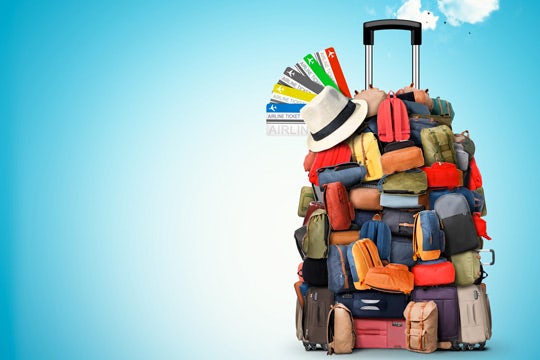
Despite the horror stories of luggage ending up in Las Palmas when the passenger connected to it was traveling to Las Vegas, the truth about lost and mishandled baggage may not be as scary as you think. Or at least it’s improved vastly since 2007, according to report released by the airline IT vendor SITA.
Entitled the 2015 Baggage Report, the survey focuses on mishandled luggage, as statistics on lost airline baggage are much harder to uncover according to Forbes. It appears airlines and airports had a heyday abusing bags in 2007, when mishandled baggage claims were at their peak.
Mishandled Baggage by the Numbers
- 61.3: Percentage of decrease in the rate of mishandled bags since 2007
- 7.3: Number of bags per 1,000 passengers that were mishandled in 2014
- 18.9: Number of bags per 1,000 passengers that were mishandled in 2007
- 13.2 Number of bags per 1,000 passengers that were mishandled in 2003
Technology to the Rescue
The decrease in luggage abuse is largely attributed to higher investments in baggage system automation – and the trend is continuing in that direction. Airports ranked baggage management and processing systems as one of their top investment priorities in 2014, and airlines are also turning to high-tech solutions.
In fact, 69 percent of airlines say in 2017 they’ll have implemented a way to provide passengers with real-time updates on their luggage’s location. Others have already joined the high-tech fray:
- 18: Percentage of airlines that currently let passengers report missing bags via kiosks
- 10: Percentage of airlines that currently let passengers report missing bags via smartphone apps
- 66: Percentage of airlines that say they’ll implement the same type of bag tracking technology by 2017
The downward trend in mishandled baggage, however, can only continue if those systems are able to scale to meet the increased demands. Passenger growth is expected to increase at about 7 percent in 2015, putting those systems to the test.
Technology Not the Only Help
All those high-tech improvements aren’t necessarily coming down the pike out of the goodness of the airline’s hearts. The International Air Transport Association (IATA), the airline trade group, is also cracking down on its members with a resolution that goes into effect in 2018.
It states that all members will have to “maintain an accurate inventory of baggage by monitoring the acquisition and delivery of baggage.”
That’s where the real scary facts set in – as many of us may have been under the impression they were doing this already.
Take the fear out of tracking your company’s travel expenses with Chrome River's expense management software.
Search
Subscribe
Latest Posts
Posts by Category
Our choice of Chrome River EXPENSE was made in part due to the very user-friendly interface, easy configurability, and the clear commitment to impactful customer service – all aspects in which Chrome River was the clear winner. While Chrome River is not as large as some of the other vendors we considered, we found that to be a benefit and our due diligence showed that it could support us as well as any large players in the space, along with a personalized level of customer care.
We are excited to be able to enforce much more stringent compliance to our expense guidelines and significantly enhance our expense reporting and analytics. By automating these processes, we will be able to free up AP time formerly spent on manual administrative tasks, and enhance the role by being much more strategic.